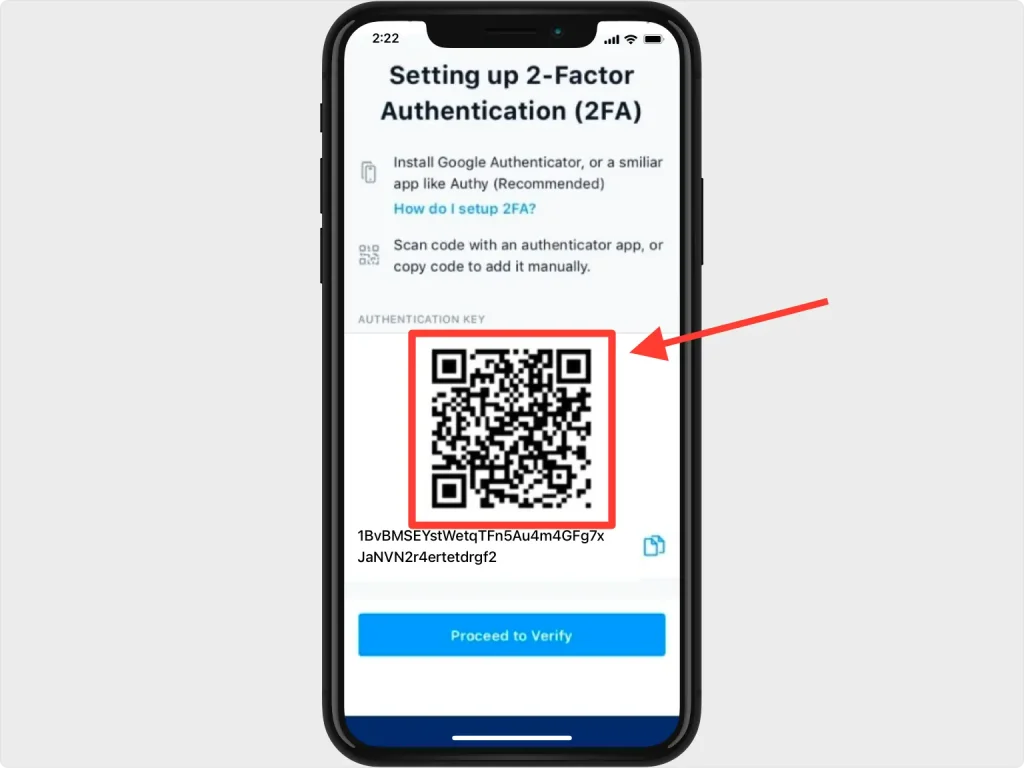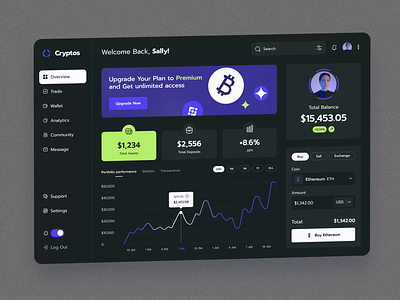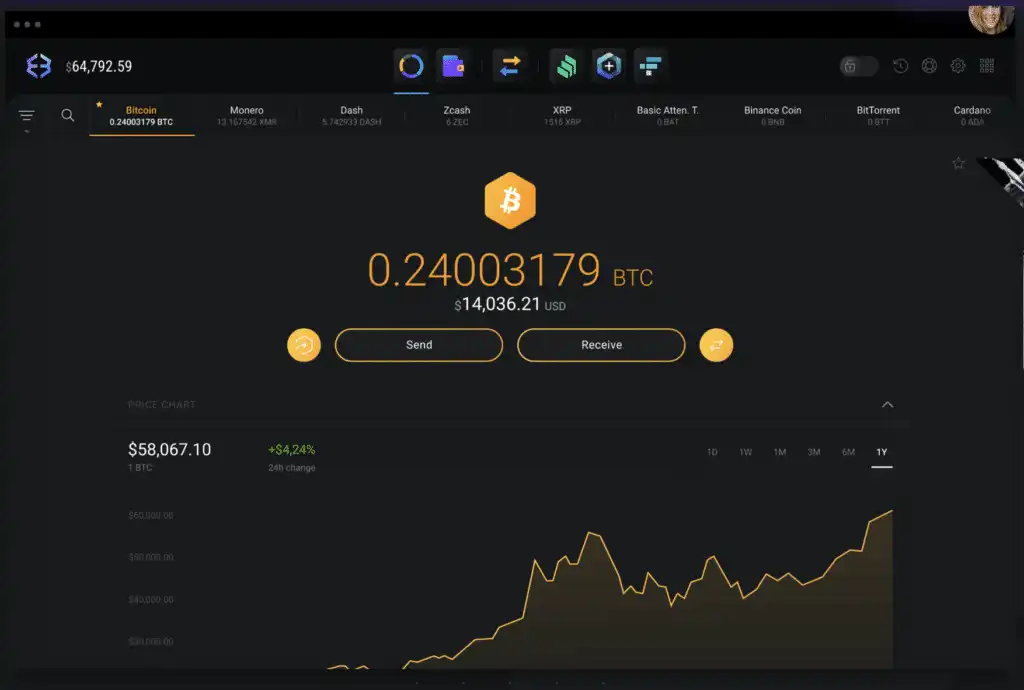Most secure desktop crypto wallets aren’t just a nice-to-have; they’re your digital treasure’s first line of defense. As your go-to expert, I’ve sifted through the vault of options to bring you the gold standard in security. Imagine leaving your gold bars at the park—sounds absurd, right? Yet, that’s what you do with digital coins in a weak wallet. It’s time to fortify your assets. From understanding encryption to creating ironclad backups, I’ll guide you to the fortress your crypto deserves. We will delve into cold storage and encryption because when it comes to your digital wealth, settling for anything but the best is a risk you can’t afford. Let’s secure your investments with the wisdom of a crypto sage. Hold on, as this journey transforms your digital security from a tin shed into an impenetrable vault.
Understanding Desktop Wallet Security Fundamentals
Cold Storage vs. Hot Wallets: Balancing Accessibility and Security
When it comes to securing your digital gold, knowing where to store it is key. Think of cold storage and hot wallets like a safe versus a wallet in your pocket. Cold storage is offline, so it’s superb at keeping hackers away. Hot wallets are online, ready for quick use, but with more risk.
With cold storage, like a hardware wallet tucked away, you have less worry about theft. But, imagine needing your coins fast – it’s not so handy then. On the flip side, hot wallets on your desktop are a click away when buying or selling. Yet, since they’re online, people with bad intentions have a shot at your stash.
Public and Private Encryption: The Building Blocks of Wallet Security
Every desktop wallet has two keys: one public, one private. They’re giant padlocks for your coins. Public keys? Think of them as your crypto mailbox address; you share it to get coins. Private keys are your mailbox key, secret and only for you. If someone else gets it, wave your coins goodbye.
When you sign off a transaction, you use your private key. It’s like penning your name in an unbreakable code only your wallet can write. Then everyone can check that code with your public key, confirming it’s really you who sent the coins. If someone tries to fake it, the code won’t match, and the coins stay put.
Keeping these keys safe is a big deal. For starters, encrypted digital wallets jumble up your key info. It’s like writing a note in secret code. Even if someone gets their hands on it, they’re lost without the decoder (your password). And trust me, these encryptions are tough nuts to crack.
But it’s not just about tough encryption. Your desktop wallet’s power to fend off attacks depends on its build. Some wallets, like Atomic and Exodus, are well-trusted. They nail the basics and toss in some extras. Electrum gets a nod for its robustness – meaning it can take a punch and keep your coins safe.
Multi-cryptocurrency desktop wallets are a sweet deal. They let you manage Bitcoin, Ethereum, and a batch of altcoins all in one spot. But as the list of coins grows, so does the need for ironclad security. That’s where understanding and using features like multisig comes into play.
Multisig, or multi-signature, is like needing several keys to open a vault. You set up a few different locks on your wallet. To access your coins, you need permission from each lock. This is smart because if one key gets swiped, your loot is still safe.
Now, picture linking a hardware wallet, like Ledger Nano, to your desktop wallet. You come close to having superhero-level defense. Not only do you keep your private keys lock-down secure, but you also get the ease of a desktop interface. It’s like having a gold vault with a convenient doorbell.
But let’s not forget, security is only as good as your habits. That means setting up wallet seed phrases, which are backup keys in case you lock yourself out. It’s like hiding a spare house key, but for your wallet. Plus, always say yes to two-factor authentication; it adds another quick checkpoint for safety.
The everyday user might not drool over encryption methods and multisig features. They just want their coins safe and their wallet easy to use. But digging into these security fundamentals? That’s how you keep your cryptocurrency out of reach from digital pickpockets. And in the crypto world, staying safe is staying ahead.
The Essentials of Desktop Wallet Backup and Recovery
Crypto Wallet Backup Protocols: Ensuring Access to Digital Assets
When you get a new wallet for your crypto, backing it up is key. This means you save secret details like your private keys or seed phrases. They let you get to your coins if something goes wrong. Think of it like knowing a secret path back home. Most good wallets will make you do this as a first step. This keeps your digital gold safe, even if your computer crashes or gets hacked.
Good wallets also offer an encrypted backup option. This keeps your backup safe from others’ eyes. Just as you wouldn’t leave gold out in the open, don’t leave your backup exposed.
Crypto Wallet Recovery Options: What Happens After the Unthinkable?
Now, what if you lose access to your wallet? What if your computer is stolen or breaks down? You’ll need your backup to get back in. For this, wallets offer different recovery options. The best ones give easy steps to use your backup to unlock your crypto again. It’s like having a spare key to a treasure chest.
Some may ask for your seed phrase, typically a list of 12 to 24 random words. Others may work with hardware wallets or use two-factor authentication for added safety. Multisig wallet features can also come in handy here, needing more than one key to open the wallet. This is extra useful if you’re storing your crypto with someone else. You both need to agree to get in.
It’s vital to check all these backup and recovery features before choosing a wallet. Pick one that matches what you need for your own peace of mind.
Always remember, with great power comes great responsibility. The safety of your cryptocurrency is mostly in your hands. Keep your backup info in a secure spot and never share your private keys or seed phrases with anyone.
Now, let’s look at what makes a wallet stand strong against the unexpected and keeps your digital gold safe. It’s your journey as a crypto user to make the choices that guard your digital treasures. Choose wisely, and always look for reliable cryptocurrency storage solutions to ensure a smooth sail in the vast crypto sea.
Analyzing Top Contenders for the Most Secure Desktop Crypto Wallets
Encrypted Digital Wallets: A Comparative Review
Let’s get down to business and talk about keeping your digital cash safe. Here’s the deal: encrypted digital wallets are your best pals when it comes to safeguarding your cryptos like Bitcoin and Ethereum. We’ve checked out a bunch of wallets, and we know which ones rock at security.
One big deal is how they manage your private keys. Private keys are like the secret codes to your crypto vault. The best wallets out there keep these codes locked down, so only you can get them. Think of Atomic Wallet and its solid protection features; this wallet keeps your codes under wraps big time.
Now, Exodus wallet, that’s one easy-to-use buddy with a rep for reliability. It doesn’t joke around with security either. And let’s chat about Electrum. It’s like the wise old man of Bitcoin wallets. It’s been around and knows how to handle attacks before they even happen.
Multisig Wallet Features: Adding Layers of Protection
Alright, multisig, short for multi-signature, is kind of like a security dream team for your wallet. Instead of one key, you need multiple keys to make a transaction. This is top-notch because it spreads the risk and keeps thieves out.
Imagine you’ve got a safe box that needs two different keys at the same time to open. That’s multisig for you. Some wallets let you and someone you trust have separate keys. If someone tries to break in, they’d need to grab both keys, which is way harder.
One shining star in this space is the Ledger Nano which can pair with desktop wallets for an added muscle layer. If you dive into the Ledger’s integration with desktop environments, you’ll see it’s a pretty clever setup that makes your coins tough to crack. Trezor wallet is another cool tool that can link up with your computer without breaking a sweat, making it a safe bet for your crypto stack.
Each wallet has its thing. Like, some go crazy on backup options, giving you a plan B if something whacky happens. And everyone’s talking about crypto wallet recovery options – ’cause let’s face it, we all have “oops” moments.
Here’s the thing to remember: no two wallets are the same. They’ve each got their playbook for keeping your crypto safe. And we love digging into their secrets and showing you the ropes. We tell you not just who’s good, but why they’re the champs at what they do.
We keep an eye out for new tricks in wallet security, always. When you pick a wallet, think about how it deals with hacking and phishing attacks. The best ones can spot these dirty tricks a mile away.
There are loads of choices, but only a few that hit the mark on all fronts to give you peace of mind, ease, and iron-clad protection. So before you pick your money’s new digital home, let’s chat about what makes each wallet rock solid.
Enhancements in User Experience and Security Integration
Desktop Wallet User Interface: Balancing Usability with Security
When you’re picking a desktop wallet, think about the big two – ease and safety. A great UI, or user interface, means a wallet is easy to use. It should make complex tasks feel simple. You want clear menus and icons that guide you without any head-scratching. Let’s look at big names like Atomic or Exodus. Trust me, they get it right. Their clean designs help you breeze through.
But here’s the kicker. A pretty face won’t keep your crypto safe. Security needs to pack a punch. The most secure desktop crypto wallets make sure of that. They need to guard your digital gold from hacking. Picture a strongbox that only you can open. That’s what you’re aiming for.
I see a lot of wallets, but the best ones stay easy to use while protecting your stash. Say, you have an Ethereum desktop wallet. You want key features that up the security and the user-friendliness. Think one-click updates. That’s important for keeping hackers at bay. Updates should be smooth, keeping your wallet ready against latest threats.
Now, what about when things go south? If something goes wrong, you want a clear path to fix it. Good wallets offer help right within the wallet. They give you tips and tricks to stay safe. And they always keep your crypto wallet backup protocols front and center. Never hiding that rescue plan.
Two-Factor Authentication and Additional Safeguards for Desktop Wallets
Let’s talk 2FA, or two-factor authentication. You’ve probably seen it on your email or banking sites. It’s simple but mighty. It adds another check when you log in or do big transactions. A code on your phone or a click on an app is what it can take. What’s awesome is it stops most sneaky attacks cold. They might snag your password, but without your phone, they’re stuck.
Secure private key management is the heart of the game. So, magic key, right? Keep it secret, keep it safe. That’s what most secure desktop crypto wallets do best. They don’t leave keys lying around. They tuck them away, encrypted and out of sight. And if your desktop kisses the dust? Good wallets have crypto wallet recovery options ready.

Secure Mobile Crypto Wallets
And let’s not forget the hardware factor. Like your Ledger Nano or Trezor buddy? They can team up with desktop wallets now. That’s double the defense. Your treasured crypto sits tight in a hardware wallet, while your desktop wallet plays gatekeeper.
But are these wallets tough to use? Not really. They’re building bridges between strong security measures – like multisig wallet features, and user-friendly designs. The goal is this: keep your digital life simple and your currency safer than a bank.
And just so you know, open-source wallets throw wide their doors for checks. That means experts and nerds alike can poke around, making sure everything’s top-notch. That’s trustworthiness with a capital T. It’s like having a thousand eyes keeping watch.
So there you go. A great desktop wallet should feel like a cozy home for your crypto. It should let you do your thing and not get in the way. At the same time, it’s like a loyal guard dog, always keeping threats at bay. The best part? They keep getting better, making sure even the sneakiest of attackers can’t lay a finger on your digital gold.
In summing up, we tackled key points to keep your digital coins safe. First, we learned how cold storage and hot wallets differ. Your choice should match how you use your money. Then we covered the must-dos of backing up and recovering wallets. This helps if trouble hits. We also sized up top desktop wallets, eyeing which guard your crypto best. Lastly, we explored how wallet design and extra safety features, like 2FA, matter.
I stand firm: Picking the right wallet and following good practices are vital for security. Remember, balance ease of use with strong protection. Stay smart and safeguard your digital treasure. Follow Dynamic Cryto network to update more knowledge about Crypto.
Q&A :
What are the top-rated most secure desktop crypto wallets currently available?
When choosing a desktop cryptocurrency wallet, security is paramount. The top-rated options that prioritize security include hardware wallets like Ledger Nano X and Trezor Model T, which are often regarded as highly secure due to their offline storage capabilities. Software wallets such as Exodus, Electrum, and BitPay also provide strong security features with encryption and private keys managed locally on your device.
How do most secure desktop crypto wallets protect digital assets?
The most secure desktop crypto wallets protect digital assets by employing a combination of advanced security protocols. This may include two-factor authentication, multi-signature requirements, strong encryption for private keys, and secure backup options. Some also allow for a recovery process in case the wallet is lost or damaged. Hardware wallets add an extra layer of security by keeping the private keys offline, effectively providing cold storage for your assets.
What are the benefits of using a desktop wallet over a web or mobile wallet for cryptocurrency?
Desktop wallets offer several benefits over their web or mobile counterparts, particularly in terms of security. They are less susceptible to online hacking attempts as they are not constantly connected to the internet. Desktop wallets give users full control over their keys and backup procedures. Furthermore, desktop environments can be more robust and offer additional features and integrations with other applications, providing a well-rounded experience for managing crypto assets.
Are there any free desktop crypto wallets that are also secure?
Yes, there are free desktop crypto wallets that provide a high level of security. Wallets like Electrum, Exodus, and Atomic Wallet are available for download at no cost and offer features such as local control of private keys, built-in encryption, and easy backup options. While they are free, it is recommended to review their security measures and update protocols regularly to ensure the highest level of protection.
What should I consider when choosing the most secure desktop crypto wallet for my needs?
When selecting the most secure desktop crypto wallet, consider factors such as the wallet’s compatibility with different cryptocurrencies, user interface, ease of use, and customer support. Evaluate the security features it provides, like encryption strength, two-factor authentication, multi-sig capability, and backup options. It’s also important to research the wallet’s development history, updates, and community reviews. Customizability and integration with hardware wallets or other services can also be important depending on your usage habits.



